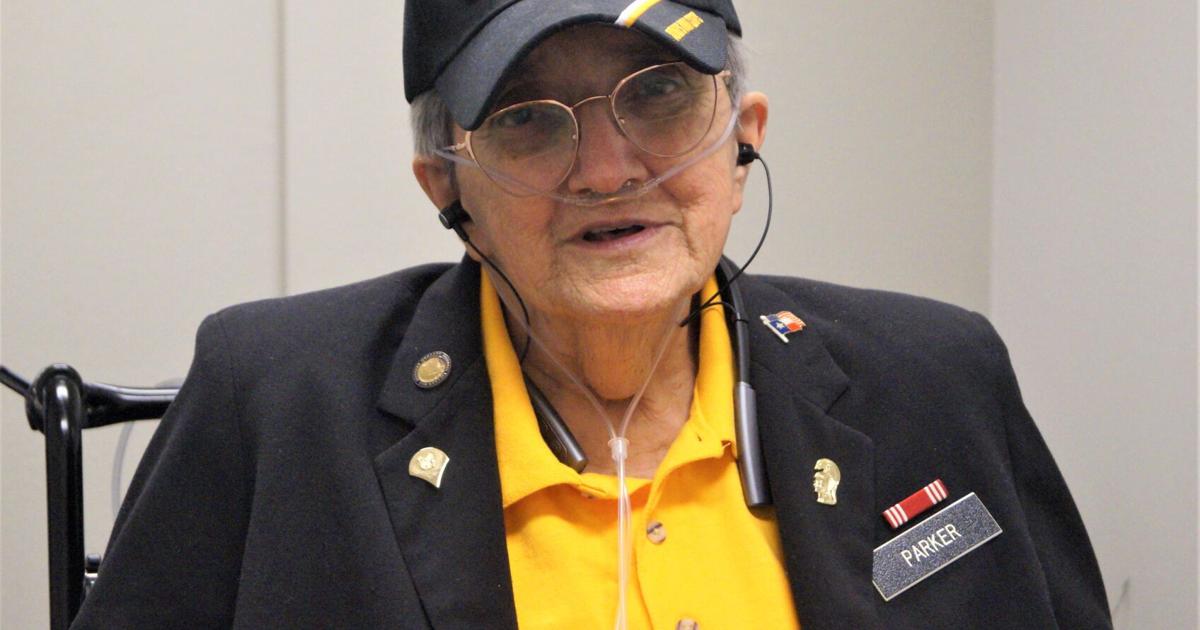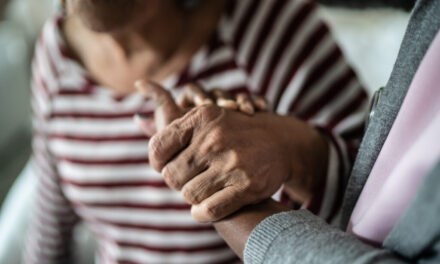
KILLEEN — Eileen Parker served in the U.S. Women’s Army Corps from 1959-62. She was married to fellow veteran, Elwood, for 55 years and they raised three children. Now, the nearly 83-year-old New York native lives in a Killeen senior center, where she has good days and bad days, but is always looking forward to a big family event in November.
“It’s hard sometimes,” Parker said recently. “I’ve had these spells — one time I was out for three days; don’t remember anything — and they didn’t know if I was going to come back, but the good Lord brought me back again.
“I’ve had surgeries on my back, my knees, my toes, different things. But the heart is the main thing, and not getting enough oxygen through my system. Do I feel sorry for myself? Sometimes. Some days are better than others. Some days, you look around and you go, ‘Why? Why me?’
“You try not to think about how much time you’ve got left, but it’s hard not to. Then you say, ‘Hey, you’re pretty lucky. You can still do this and do that.
“You think, ‘OK, my granddaughter is getting married the 4th of November. That’s my son’s only daughter, and I want to live long enough to see my son come down the aisle with my granddaughter.”
Eileen was born at her grandmother’s house in Owego, New York, near the border with Pennsylvania. Her dad, Robert Reynolds, and an uncle were both Army veterans. She grew up with three sisters and a brother, and when she graduated from high school, she went straight into the military herself.
“I got out of high school and went right in the service,” she said. “I wanted to play sports, and I didn’t have the money to go to college. I didn’t have good enough grades to get a scholarship, either.
“I enjoyed the service. I always thought it was unfair that they drafted the guys and not the girls. There are things we both can do, so I think they should have drafted women, too.
“I played basketball, volleyball, ping pong. I was First Army ping pong champion in 1960.”
After basic training at Fort McClellan, Alabama, Parker headed to Fort Benjamin Harrison in Indiana, where she trained in finance and became a clerk. She served at Fort Jay on Governors Island in New York Harbor, and was a payroll clerk for a time in Okinawa.
“It was a pain,” she said, laughing. “You’d see this flat boat come in and it’s got all these crates full of money. Everybody got paid in cash. I don’t think they heard of checks back then. You’d count all the crates three times, then you had a list of names and what they get, and that’s what you gave them. Sometimes they’d say, ‘Why can’t I get more?’ You tell them, ‘That’s just the way it is.’”
When she and Elwood left the service, they moved to DeWitt, New York, near Syracuse, and went to work raising a family.
“I worked for GE (General Electric) for a couple years,” Eileen said. “My husband got a job with a company that went house to house, selling all kinds of stuff — furniture, clothing, canned goods, coffee, tea. He loved it because he enjoyed talking to people. He also worked in a gas station.
“At one time, between the two of us, we had eight jobs going. We threw newspapers; we cleaned houses; we cleaned the laundromat. We did a lot of it together (and) we brought our kids. We always tried to get something where we could bring the kids with us. They helped a little bit, so they could get a little money.”
As they got older, a son who joined the Army and retired from Fort Hood (now Fort Cavazos), invited his parents to come down to Central Texas and move in with him and his family about 12 years ago.
“That’s how I ended up here,” Eileen said. “My husband was getting worse (health wise) and my son and his wife said to us, ‘We’ve got lots of room. Come on and stay with us.’
“Well, they did (have plenty of room) when they asked us, but then their daughter came back home and their two grandkids moved in, and they needed their own bedroom. My husband got really bad and he was in a nursing home. Then he passed away and later on, I had a heart attack and kept getting worse. I’ve had two (metal) plates put in my back and one in my neck after a car accident, and I finally said it’s time for me to make this move (to the senior center) almost five years ago.
“Most of the time, the nursing home is good. It’s just like anything else. One thing is they change people so often. Everybody is doing the same thing … They’re going to these contract (jobs) where they can get more money. So they work three days over in Copperas Cove and two days here. They rotate. There are a few that stay and work here all the time.
“A typical day for me … I’ve learned to color and paint. I just learned how to take little beads and make chains. When I first came, I was able to get up and get my own shower, (and) go around and talk to people. I’ve always enjoyed going around and saying, ‘Hey, how’s your day? Whatcha doing?’
“Then my legs started getting worse. I was on a walker for a while, and now I’m in this wheelchair. The heart starts acting up …
“I’m pretty satisfied with everything. I’ve been really blessed with three good kids that take care of me. They make sure I’ve got what I need. My son didn’t have to take me in like he did, and now he comes almost every day at lunchtime to bring me lunch.
“One thing I’d do different is, I wish I could have had more time in the military. I liked it … I really did. When you talk to people now and read about what they have to do, it’s so different — but I think I could have fit in. I think I could have done it because I really wanted it.
“I always tell my kids, ‘You find something you really want to do, and you do the best you can. That’s all you can ask for. Don’t do something because you think you’re going to get five dollars more. Do something you’re gonna really like doing. Take a piece of paper and make a list of the good and the bad. Decide what you really want to do and then go do it.”
Eileen knows that she has a lot more birthdays behind her now than in front of her, and with her health concerns, she is not sure how many more birthday cakes are in her future. But, for now, she is fairly happy and looking forward to the big shindig in November.
After that, well … Only time will tell. There is always another great-grandchild being born to look forward to.
Maybe next on the agenda is sticking around long enough for that?
“I don’t know about that one,” the mother of three, grandmother of four and great-grandmother of six said. “It’s a good thought, but there’s no guarantee when you’re going to die … And that’s a long way away off, babe.
“My favorite thing to do now is just to wheel around and talk to people. I can’t go as much as I used to. My body can’t take it and I have to rest a lot more. For a while after my husband died, I didn’t really care about living. I’d just as soon go with him. Then I found out my granddaughter was getting married, and I really like the guy. So that’s what I’m looking forward to now.”




